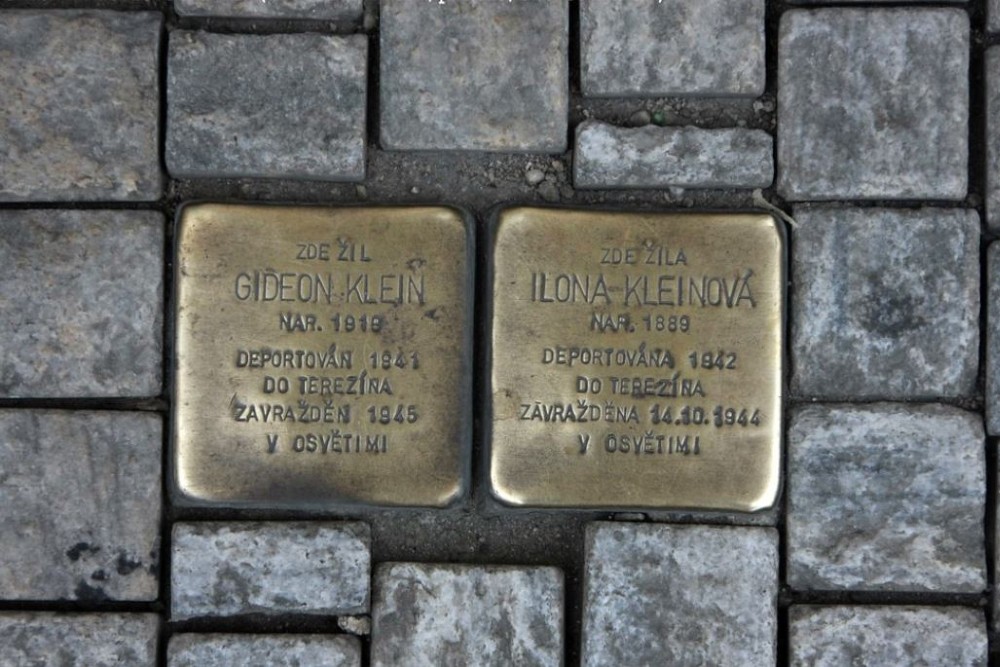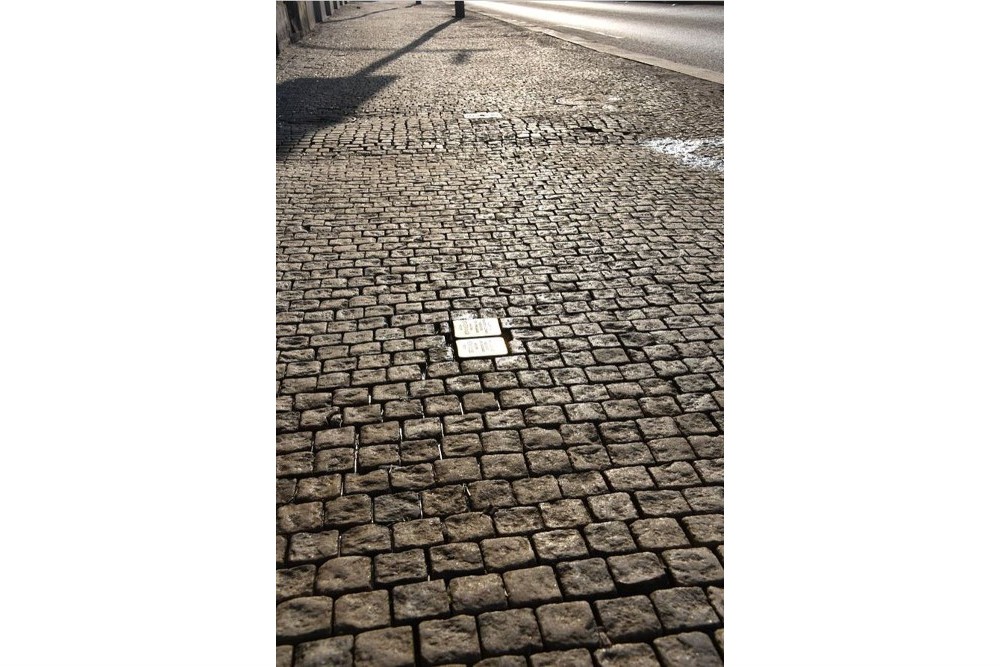Stumbling Stones Rašínovo nábřeží 1696/66
These small brass memorial plaques (Stolpersteine or stumbling stones) commemorate:
* Gideon Klein, born 1919, deported 1941 to Theresienstadt, murdered 1945 in Auschwitz.
* Ilona Kleinová, born 1889, deported 1942 to Theresienstadt, murdered 14 October 1944 in Auschwitz.
Gideon Klein was considered a brilliant musician and composer. He was deported on 1 December 1941 with many other Prague Jews to Theresienstadt. There he was active in fostering the camp's musical life. He played chamber music with other Prague musicians, accompanied singers, and assisted in the preparation and accompanied the performances of Smetana’s The Bartered Bride and Verdi's Requiem. Rafael Schächter was the conductor; a stolperstein for him is at Belehradska 573/61 in Prague. After a performance of the Requiem for the Red Cross inspectors in the summer of 1944, Gideon Klein, Rafael Schächter, and about 1,500 others were deported from Theresienstadt to Auschwitz in October. Gideon Klein was apparently selected for hard labor in a coal mine near KZ Fürstengrube, a sub-camp of Auschwitz. Fürstengrube was dissolved / evacuated in January 1945. Many died on the evacuation death march; prisoners too sick to march remained, but the SS set fire to the barracks where they were housed. The circumstances of Gideon Klein’s death that January are unclear.
Ilona Kleinova was Gideon Klein’s mother. His father died in 1941. She was deported to Theresienstadt in July 1942 -- 8 months after her son. They probably met there. She was deported to Auschwitz on 12 October 1944 – 4 days before her son. Of the 1,500 prisoners on that Auschwitz transport, only 112 survived. Ilona Kleinova was probably murdered on arrival.
"Stolpersteine" is an art project for Europe by Gunter Demnig to commemorate victims of National Socialism (Nazism). Stolpersteine (stumbling stones) are small, 10x10cm brass plaques placed in the pavement in front of the last voluntary residence of (mostly Jewish) victims who were murdered by the Nazis. Each plaque is engraved victim’s with the name, date of birth, and place (mostly a concentration camp) and date of death. By doing this, Gunter Demnig gives an individual memorial to each victim. One stone, one name, one person. He cites the Talmud: "A human being is forgotten only when his or her name is forgotten."
For more information about Stolpersteine in Prague and pictures, please visit Stolpersteine Czech Republic (in Czech).
Do you have more information about this location? Inform us!
Source
- Text: Fedor de Vries & Anne Palmer
- Photos: Suzanne Matrosov-Vruggink (1), Francisco Peralta Torrejón (2)
- Music and the Holocaust: Gideon Klein
- holocaust.cz
- Auschwitz subcamps
- Stolpersteine.eu
Nearby
Museum
Point of interest
- National Memorial to the Heroes of the Heydrich Terror - Praha
- Former Gestapo Headquarters Prague - Praha
- Prague Castle - Praha
Monument
- Memorial World War I Veterans - Praha
- Memorial Crypt Attack Heydrich - Praha
- Memorial Ladislav Polák - Praha
Cemetery
- Russian Field Grave - Praga
- Czechoslovak War Graves - Praha
- Commonwealth War Cemetery Prague - Praha







